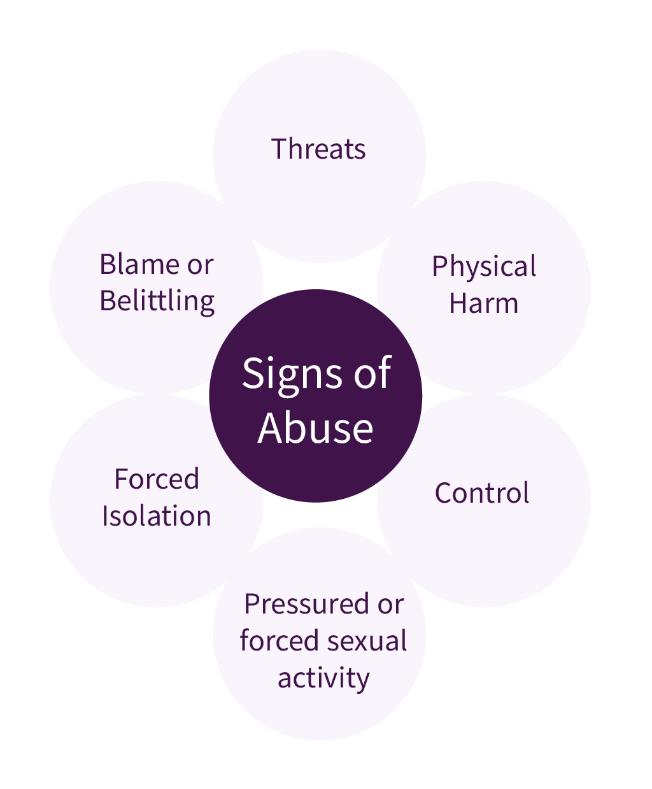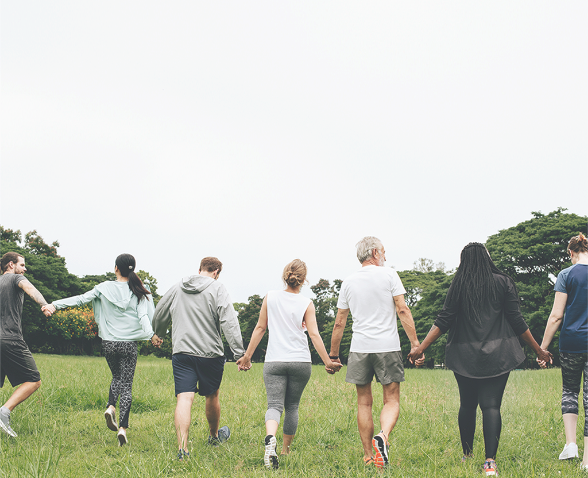Information & safety
At Swain Qualla Safe, we understand that leaving an abusive relationship or seeking help after experiencing violence can feel overwhelming. You may feel trapped, afraid, or unsure where to turn. You are not alone. We are here to listen, to believe you, and to help you find a way forward—safely and on your own terms.
If you are in immediate danger, call 911.
For confidential support, you can reach out anytime:
Swain Qualla Safe 24/7 Crisis Line:
828-488-6809
National Domestic Violence Hotline:
800-799-7233
National Sexual Assault Hotline (RAINN):
800-656-4673


Recognizing abuse
Abuse is not always physical. It can be emotional, verbal, financial, or
even digital. It often happens gradually, making it hard to recognize. You
may feel like you are constantly walking on eggshells or that nothing you
do is right. If someone in your life is…
- Isolating you from family, friends, or work
- Controlling your money, choices, or movements
- Threatening you or your children
- Physically harming you (hitting, choking, pushing)
- Forcing or pressuring you into sexual activity
- Monitoring your phone, social media, or location
- Belittling you, blaming you, or making you feel like you are the
problem
These are all signs of abuse. You are not imagining things. It is not your fault. And you do not have to go through this alone.
Planning for your safety
If you are in an unsafe situation:
- Save emergency numbers under a name only you recognize.
- Identify a trusted friend or family member who knows your situation.
- Have a plan for where you could go if you need to leave quickly.
- Keep a small bag packed with essentials like ID, cash, medications, and clothes.
- Document injuries or threats if you can do so safely.
If you are ready to leave:
- Gather important documents such as birth certificates, bank information, and
legal papers. - Turn off location tracking on your phone and social media.
- Change passwords for your email, banking, and social media accounts.
- Seek legal protection, such as a restraining order. (We can help with this.)
- Let a trusted person know your plan and check in with them when you can.
We know leaving can feel impossible. Abusers often make it seem like there is no way out, but that is not true. There are people ready to help you take the next step when you are ready.
How we can help
No matter where you are in your journey, we provide free, confidential support, including:

Emergency Shelter
Safe, confidential housing for individuals and families escaping violence Help to find longer-term housing options

Legal Advocacy
Assistance with protective orders (50B/50C) Support navigating court processes and law enforcement interactions

Crisis Counseling & Emotional Support
One-on-one trauma-informed support A safe space to talk about what you have been through

Exit Planning & Survivor Support
Personalized safety planning Help connecting to financial and employment resources

Community Education & Prevention
Programs to prevent domestic violence and sexual assault Training for schools, workplaces, and community groups.
Supporting a loved one
- Let them know you are there, no matter what.
- Do not pressure them to leave before they are ready.
- Leaving can be dangerous.
- Offer practical help, like a safe place to stay or transportation.
- Share resources, but let them make their own choices.
- Your support could make all the difference.

Protecting your online Safety
If you are in an abusive relationship, be mindful that your internet activity may be monitored.
- Use a private or incognito browser when searching for help.
- Clear your search history regularly if you are using a shared device.
- Set up a new email or phone number for private communication.
- If you need to exit this page quickly, click the “Exit Now” button at the top of the screen. This will take you to a neutral website.
